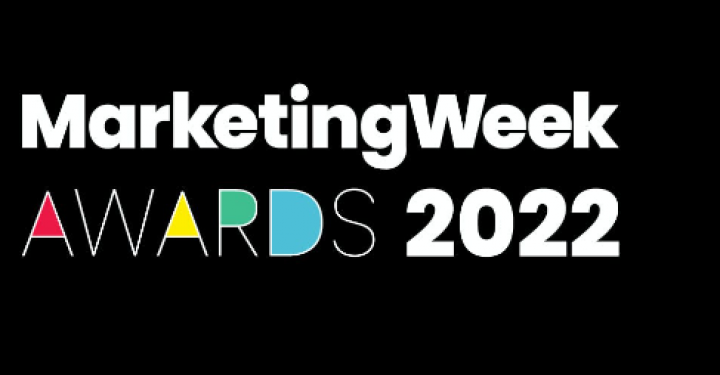
You may not actively use the term content marketing, but the likelihood is, you’ve already been consuming it. The majority of the content that you consume online, from video tutorials to blogs and infographics, all boils down to content marketing, especially in a B2B sphere. You’re selling your expertise to people who require your services, and what better way to prove your know-how than with helpful and informative content?
What is content marketing?
Content marketing in a B2B setting is essentially about sharing your knowledge. Because it focuses on informing and educating your audience it can be a lot more effective than traditional marketing strategies. The Content Marketing Institute defines it as:
A strategic marketing approach focused on creating and distributing valuable, relevant, and consistent content to attract and retain a clearly-defined audience – and, ultimately, to drive profitable customer action.
Essentially, content marketing is information you produce that helps other people – it supports your marketing if you create content which your clients need and which your prospects are actively looking for.
If you’ve ever typed into Google ‘how can I be more effective ’ or ‘how does Zoom work?’, chances are you’ve been actively served with content marketing campaigns purposely designed to attract you to their websites.
Why should you invest time into content marketing?
Looking back to CMI’s definition, creating valuable content consistently is easier said than done. How do you keep generating ideas day after day, year after year, that people are going to want to read or that is useful to them? And, if it’s this difficult to even think of ideas, then why should you bother wasting your time generating content that you’re just going to give away for free anyway?
Well, there are three key reasons why you should be investing time into content marketing despite its complexity and difficulty:
- Increased sales – People who read your content and find it valuable will remember your brand’. And, even if they forget after the first piece of content, if you’re producing valuable assets consistently, then through natural laws of memory and repetition mean the message will eventually get through. This means, when they’re next struggling to find an answer to a particular problem, they’ll turn to your blog/infographics/YouTube channel/podcast for advice, and then consider investing money into your product/service to make their life easier – because you have proved know what you’re talking about.
- Cost savings – Content marketing allows you to put important messages about your business in front of new targeted audience members every single day using social media, email, your own and other people’s websites. This saves you costs in marketing activities because your customers will be sharing your valuable content with their colleagues & associates, meaning you reach new prospects without putting in any extra work. You’re appealing to your current and existing audience in one nicely-wrapped piece of content. Gone are the days of relying on massive budgets spent on adverts. You can create your own engaging content to drive sales by simply setting up free social media accounts and updating your website or developing an authoritative content ‘asset’ such as a downloadable explainer.
- Loyal customers – Creating content that’s relevant and informative places you as an authority in your field. If your audiences like and relate to your content, and it’s displayed in a fun, unique, and interesting manner, then they’ll keep coming back for more. And every time your company’s name appears on your customers’ LinkedIn feeds or a useful email hits their inbox, it reminds them of the value you can add to their thinking. You’ll have gained their trust and loyalty without having to trick them through cheeky marketing strategies that require a huge budget.
What does content marketing look like in practice?
Blogs – the simplest form of content marketing is blogging. Companies fill their blog pages with a wide variety of information – some of which promotes their product and some ofwhich is simply useful, encouraging the audience to engage. Either way, putting time aside to think of blog ideas and generate well-written content is a great way to kickstart your content marketing strategy before moving on to some of the more adventurous methods detailed below.
Digital assets – providing your audience with digital assets such as digital explainer documents or branded guides presents your firm as a company willing to help. You have expertise in your subject and you’re willing to give this away for free to help potential customers to think things through clearly. Digital assets, if done right, are great examples of your technology innovation, your understanding of your customers, and your profound knowledge in your field. So get working on a calculator, downloadable template, or online guide and you’re bound to see an increase in engagement.
Infographics – an infographic is a detailed graphic which usually visually displays data or a process. Infographics are great examples of shareable content marketing, that helps you to clearly articulate a complex message. They’re great for explaining different solutions to a problem or steps a customer will need to take to achieve a certain result. If your infographics are engaging and informative, they’re likely to be shared on social media and third-party websites for years – proving invaluable for gaining backlinks and reaching new users. Infographics can be shared on social media as standalone images or embedded into blogs to back up your content messages. Here’s one we’ve made all about content marketing.
Podcasts – podcasts have really come into their own over the past few years and they’re great for content marketing. People are increasingly using podcasts to get informed and inspired on a range of topics, and the greatest thing is – your audience can listen anywhere, at any time, no matter what you’re doing. They’re fantastic if you work in a particularly complex field where it’s helpful for people to gain deeper insight. So, even when your listeners are out on a long drive or climbing up a mountain, they won’t miss out on your valuable content which may inspire them to invest in your product or service.
Videos & animations – like podcasts, videos are great because they allow people to hear your voice (and see you) – getting to know you as a person, rather than just a faceless company. The good news is, people no longer expect polished pieces that have taken months to film and edit. You can be just as effective by providing helpful information, filmed from your smartphone, with some minimal editing. A strong topic and a considered script are the keys to success.
How we can help?
At Goldcrest, B2B marketing is what we do. Our multi-disciplinary team are here to create the ideas, design the infographics, create the videos and write the blogs that will have your content marketing strategy in front of your audience. Click here to find out more about our outsourced marketing services or contact us to leap into your future content.





